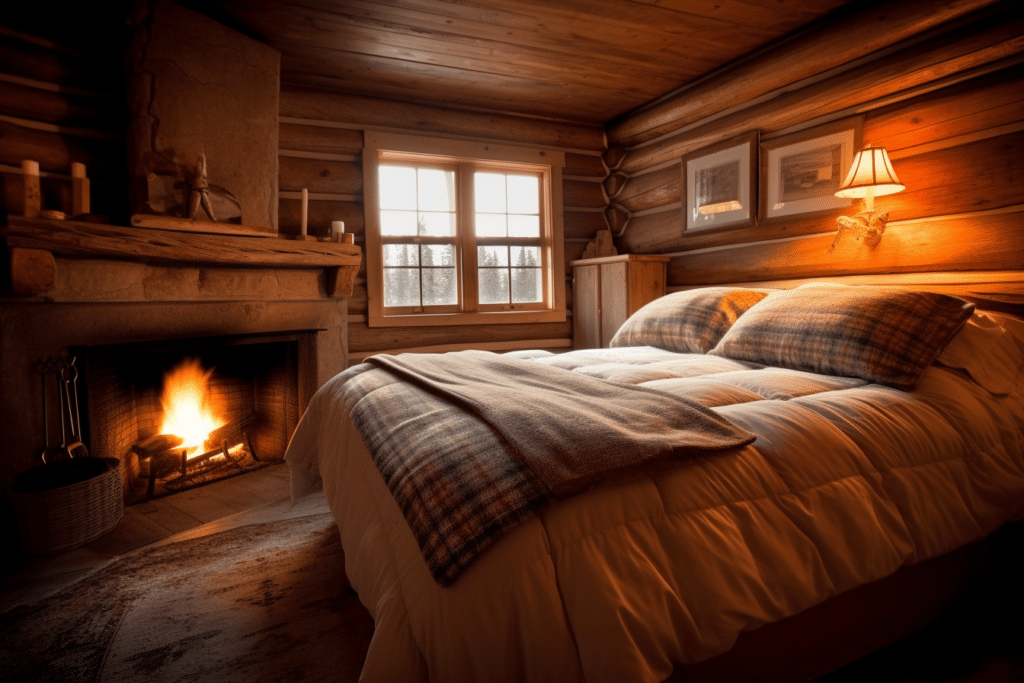Snoring is a common phenomenon that affects a significant portion of the population, causing disruptions in sleep patterns and leading to various health issues. Understanding why people snore and exploring effective treatment options is crucial for improving overall well-being. This article aims to provide an objective analysis of the causes of snoring, taking into consideration factors such as anatomy, age, obesity, alcohol consumption, medications, as well as the role of oral devices, surgical interventions, and alternative therapies in managing this condition.
The first section of this article will delve into the anatomical aspects of snoring. By examining the structures involved in the process of breathing during sleep, such as the nasal passages, throat muscles, tongue position, and uvula size and shape, readers will gain insights into how these factors contribute to snoring. Subsequently, common causes of snoring will be explored in detail. Factors such as nasal congestion due to allergies or sinusitis, deviated septum or other structural abnormalities in the nose or throat area can all play a role in obstructing airflow and resulting in snoring. Additionally, age-related changes that lead to increased laxity in throat muscles and decreased muscle tone can also contribute to this condition. Finally, obesity has been identified as a significant risk factor for snoring due to excess fat deposits around the neck area that narrow airways during sleep. By presenting an impartial examination of these causes without personal bias or opinions included within this article’s content will provide readers with valuable knowledge on understanding why people snore and how it can be effectively treated.
Understanding the Anatomy of Snoring
The understanding of the anatomy of snoring is essential for comprehending its underlying causes and developing effective treatment strategies. Snoring occurs when there is a partial obstruction in the airway during sleep, resulting in vibrations of the soft tissues in the throat and nose. To understand snoring mechanisms, it is important to explore the correlation between snoring and sleep apnea.
Snoring typically originates from the relaxation of muscles and tissues in the upper airway. During sleep, these relaxed structures can partially block or narrow the passage through which air flows, leading to turbulent airflow. This turbulent airflow causes vibrations in the soft tissues of the throat and nose, resulting in audible sounds known as snores. The exact location and extent of these obstructions can vary among individuals, contributing to differences in snoring patterns.
Furthermore, it is crucial to consider the relationship between snoring and sleep apnea. Sleep apnea is a common disorder characterized by repeated pauses or reductions in breathing during sleep due to complete or partial blockage of the airway. Snoring can be an indication or a symptom of obstructive sleep apnea (OSA), which occurs when these partial obstructions lead to significant airflow limitations during breathing while asleep. Understanding this correlation allows healthcare professionals to identify potential cases of OSA early on and develop appropriate treatment approaches that address both snoring and underlying sleep apnea issues.
Comprehending the anatomy of snoring provides valuable insights into its causes and helps develop effective treatment strategies. By understanding how relaxed muscles and tissues obstruct airflow during sleep, healthcare professionals can better address individual cases based on their specific obstructions. Additionally, recognizing that snoring may be correlated with obstructive sleep apnea highlights its importance as a potential symptom requiring further evaluation for appropriate management options.
Identifying Common Causes of Snoring
Identifying common causes of snoring involves examining various factors that contribute to the disruptive noise during sleep. One of the primary causes of snoring is the relaxation of muscles in the throat and tongue. When these muscles relax too much, they can block or partially obstruct the airway, leading to vibrations and snoring sounds. Another common cause is excess weight or obesity. Extra fatty tissue around the neck and throat can put pressure on the airway, narrowing it and increasing the likelihood of snoring.
Other factors that can contribute to snoring include nasal congestion, allergies, or sinus infections. When the nasal passages are blocked or inflamed, airflow becomes restricted, forcing individuals to breathe through their mouths and increasing the chances of snoring. Additionally, alcohol consumption and smoking can also exacerbate snoring symptoms. Alcohol relaxes muscles throughout the body, including those in the throat and tongue, which can lead to increased vibration during sleep. Smoking irritates and inflames the lining of both nasal passages and throat, further compromising airflow.
To prevent or reduce snoring, several strategies can be implemented. Weight loss is often recommended for individuals who are overweight or obese as it helps decrease fatty tissue around the neck area that contributes to airway obstruction. Maintaining a healthy lifestyle with regular exercise may also improve muscle tone in key areas such as throat muscles.
Addressing nasal congestion through over-the-counter remedies or seeking medical treatment for underlying conditions like allergies or sinus infections can help alleviate obstructions in your airways.
Avoiding alcohol consumption before bedtime is advised since it relaxes muscles in your throat that might worsen your tendency to snore while sleeping. Similarly, quitting smoking not only benefits overall health but also reduces inflammation in your respiratory system.
Lastly, changing sleep positions by elevating your head slightly with pillows may help keep airways open by reducing pressure on them.
By identifying these common causes and implementing preventative measures such as weight management techniques, addressing nasal congestion, avoiding certain substances, and changing sleep positions, individuals can take steps towards reducing or eliminating snoring for a more restful night’s sleep.
The Role of Age in Snoring
Age is a significant factor that can influence the occurrence and severity of snoring. Research has shown that snoring tends to increase with age, with prevalence rates higher among older individuals. This can be attributed to various physiological changes that occur in the respiratory system as people age. For example, muscle tone in the throat and tongue may decrease, leading to a narrowing of the airway during sleep. Additionally, tissues in the throat may become more relaxed and prone to vibration, resulting in the characteristic sound of snoring.
Furthermore, studies have explored the relationship between gender and snoring, finding that men are more likely to snore than women. However, this difference diminishes after menopause when hormonal changes in women can contribute to an increased risk of snoring. Another factor that can exacerbate snoring is smoking. Smoking has been associated with increased inflammation and swelling of the airways, which can further narrow the passage for airflow during sleep. Consequently, smokers are more likely to experience heightened severity of snoring compared to non-smokers.
Age plays a significant role in determining both the occurrence and severity of snoring. As individuals grow older, changes in muscle tone and tissue elasticity within the respiratory system can contribute to an increased risk of snoring. Moreover, while men tend to be more prone to snoring than women overall, this difference diminishes after menopause due to hormonal fluctuations. Additionally, smoking has been identified as a contributing factor that worsens snoring severity by causing inflammation and narrowing of the airways during sleep. Understanding these factors is crucial for developing effective treatment strategies for individuals suffering from problematic or disruptive snores at different stages of life.
How Obesity Contributes to Snoring

Obesity has been identified as a significant contributing factor to the occurrence and severity of snoring. The excess weight around the neck and throat area can lead to narrowing of the airways, which causes breathing difficulties during sleep. This obstruction in airflow results in vibrations of the soft tissues in the throat, leading to the characteristic sound of snoring. Moreover, obesity is closely associated with sleep apnea, a serious sleep disorder characterized by repeated episodes of complete or partial blockage of the upper airway during sleep. When an individual with obesity experiences these episodes, they may momentarily stop breathing and then gasp for air, disrupting their sleep pattern.
To manage snoring effectively in individuals who are obese, weight loss plays a crucial role. Shedding excess weight can help reduce fat accumulation in the neck area and relieve pressure on the airways. By adopting a healthy diet plan and engaging in regular physical activity, individuals can promote weight loss and improve their overall health. Additionally, targeted exercises that strengthen the muscles around the throat and tongue may also be beneficial in reducing snoring caused by obesity.
Obesity is an important factor contributing to both the occurrence and severity of snoring. It leads to narrowing of the airways due to excess fat accumulation around the neck and throat area, resulting in disrupted airflow during sleep. Furthermore, obesity is closely linked with sleep apnea, further exacerbating snoring issues. Weight loss through proper dieting and exercise is key to managing snoring caused by obesity effectively. By addressing this underlying cause, individuals can alleviate their snoring symptoms while improving their overall health and quality of sleep.
The Impact of Alcohol and Medications on Snoring
Alcohol consumption and certain medications have been found to have a significant impact on the occurrence and severity of snoring. Alcohol is a muscle relaxant that can cause the muscles in the throat to relax excessively, obstructing the airway and leading to snoring. Additionally, alcohol can also lead to an increase in nasal congestion, further contributing to snoring. Therefore, it is recommended for individuals who experience snoring to limit or avoid alcohol intake, especially before bedtime.
In addition to alcohol, certain medications can also contribute to snoring. Sedatives and tranquilizers are commonly prescribed medications that can relax the muscles in the throat and interfere with normal breathing during sleep. These medications can worsen snoring or even trigger it in individuals who do not usually snore. If a person experiences snoring as a side effect of medication usage, it is advisable for them to consult their healthcare provider for potential alternatives or adjustments in dosage.
Limiting alcohol consumption and being aware of the potential effects of certain medications on snoring are crucial steps towards managing this sleep-related issue. By understanding these factors and making necessary lifestyle changes or seeking alternative medication options when needed, individuals may be able to reduce the occurrence and severity of their snoring episodes.
Lifestyle Changes to Reduce Snoring
Certain lifestyle changes can be effective in reducing the occurrence and severity of snoring episodes. One such change is making diet modifications. Obesity is often associated with an increased risk of snoring due to excess fat deposits in the throat, which can obstruct airflow during sleep. Therefore, adopting a healthy and balanced diet can help individuals lose weight and potentially reduce their snoring. This may involve consuming more fruits, vegetables, whole grains, and lean proteins while limiting the intake of processed foods high in saturated fats and sugars. Additionally, avoiding heavy meals close to bedtime can prevent indigestion and acid reflux, both of which contribute to snoring.
Another lifestyle change that can aid in reducing snoring is positional therapy. This approach involves altering sleeping positions to minimize airway obstruction during sleep. Sleeping on one’s back tends to worsen snoring as gravity causes the tongue and soft tissues at the back of the throat to collapse into the airway. Encouraging individuals who snore to sleep on their sides or elevate their head using pillows can help keep the airway open and promote better breathing during sleep. Some individuals find it helpful to use specialized devices like positional pillows or tennis balls attached to their backs as a reminder not to roll onto their backs while sleeping. However, it is important for individuals considering positional therapy to consult with a healthcare professional for guidance on selecting appropriate techniques based on their specific needs.
Making certain lifestyle changes such as implementing diet modifications and practicing positional therapy can be effective strategies for reducing snoring episodes. By adopting a healthy eating pattern and maintaining a healthy weight through proper nutrition choices, individuals may experience a decrease in snoring severity. Furthermore, modifying sleeping positions by avoiding sleeping on one’s back can also contribute significantly towards alleviating this condition. Combining these lifestyle changes with other treatment options recommended by healthcare professionals may provide comprehensive management for those seeking relief from chronic snoring symptoms.
Using Oral Devices for Snoring Relief
To further explore the topic of reducing snoring, this subtopic focuses on the use of oral devices as a potential solution. Oral appliances are commonly recommended by healthcare professionals to alleviate snoring and improve sleep quality. These devices work by repositioning the jaw or tongue to increase the airway space, thus reducing airflow resistance and minimizing snoring.
Numerous studies have examined the effectiveness of oral devices in treating snoring. Research suggests that these appliances can significantly reduce both the frequency and intensity of snoring sounds. However, it is important to note that their effectiveness may vary depending on individual factors such as the underlying cause of snoring and anatomical features. While oral devices appear promising for many individuals, some may experience side effects such as temporary jaw discomfort or excessive salivation.
For those seeking alternatives to surgery or continuous positive airway pressure (CPAP) machines, oral devices present a cost-effective option. Compared to surgical interventions or expensive CPAP machines, oral appliances are generally more affordable and accessible. Additionally, long-term benefits beyond improved sleep quality include reduced daytime fatigue and enhanced overall well-being. Moreover, user satisfaction with oral devices has been reported to be high due to their convenience and non-invasive nature.
To ensure optimal usage and comfort, professional fitting is crucial when using oral appliances for snoring relief. A customized device that fits properly can minimize discomfort and maximize effectiveness. Regular maintenance is also necessary to keep these devices clean and functional over time. Despite these considerations, it is worth exploring oral appliances as they offer an alternative approach for managing snoring while potentially improving sleep quality without significant drawbacks or complications associated with other treatments.
Exploring Surgical Options for Snoring Treatment
Surgical interventions offer a potential avenue for individuals seeking long-term relief from snoring. While there are non-surgical options available, such as lifestyle changes and the use of oral devices, some cases of snoring may require more invasive measures to effectively address the underlying causes. Surgical treatments aim to target the anatomical structures in the throat and nasal passages that contribute to snoring.
One surgical option is uvulopalatopharyngoplasty (UPPP), which involves removing excess tissue from the palate and throat. This procedure widens the airway, reducing turbulence and vibrations during breathing that cause snoring. Another surgical approach is septoplasty, which corrects a deviated septum by straightening the nasal septum. By improving airflow through the nose, septoplasty can alleviate snoring caused by nasal obstruction.
While surgical treatments have shown effectiveness in reducing or eliminating snoring in some individuals, it is important to consider certain factors before opting for surgery. The success of surgical interventions depends on various factors such as the specific cause of snoring, individual anatomy, and overall health condition. Additionally, surgery may carry risks and potential complications that need to be discussed with a healthcare professional.
While non-surgical options exist for managing snoring, surgical interventions provide an alternative route for those seeking long-term relief from this condition. Uvulopalatopharyngoplasty and septoplasty are two examples of surgical procedures aimed at addressing anatomical issues contributing to snoring. However, it is crucial to carefully evaluate each individual case considering factors like underlying causes of snoring and associated risks before deciding on surgical treatment as an option.
Alternative Therapies for Snoring Management
In the previous subtopic, we discussed surgical options for treating snoring. However, in addition to surgical interventions, there are alternative therapies that can be explored for managing snoring. These alternative therapies focus on non-invasive approaches and aim to alleviate snoring through various techniques such as acupuncture and aromatherapy.
Acupuncture, an ancient Chinese practice, involves the insertion of thin needles into specific points on the body. It is believed that stimulating these points can restore the balance of energy in the body, leading to improved health outcomes. In terms of snoring management, acupuncture has shown promise in reducing snoring intensity and frequency. By targeting specific acupoints related to respiratory function and sleep disorders, acupuncture may help relieve nasal congestion and relax throat muscles associated with snoring.
Another alternative therapy that has gained attention for its potential benefits in managing snoring is aromatherapy. Aromatherapy involves using essential oils derived from plants to promote relaxation and improve overall well-being. Certain essential oils have properties that can help open up airways, reduce inflammation, and enhance sleep quality. For instance, peppermint oil is known for its decongestant properties which may alleviate nasal congestion contributing to snoring. Lavender oil, on the other hand, has calming effects that could potentially aid in reducing stress levels and promoting better sleep patterns.
While surgical options exist for treating snoring, alternative therapies provide non-invasive approaches worth exploring. Acupuncture targets specific acupoints related to respiratory function while aromatherapy utilizes essential oils with properties beneficial for improving sleep quality. Further research is needed to determine the effectiveness of these alternative therapies and their role in comprehensive snoring management strategies.
Improving Sleep Quality for Snorers and Their Bed Partners

Improving sleep quality is a crucial aspect to consider for both snorers and their bed partners. Snoring can disrupt the sleep of both individuals, leading to daytime fatigue, irritability, and reduced cognitive function. Partner involvement plays a key role in improving the sleep quality of snorers. Encouraging open communication between partners about the impact of snoring on their sleep can lead to understanding and support. Bed partners may suggest lifestyle changes such as weight loss or avoiding alcohol consumption before bedtime, which are known to contribute to snoring. Additionally, bed partners can help by creating a conducive sleeping environment that promotes relaxation, such as maintaining a cool temperature and minimizing noise distractions.
Another important consideration in improving sleep quality for snorers is identifying underlying conditions like sleep apnea. Sleep apnea is a potentially serious disorder where breathing repeatedly stops and starts during sleep due to blocked airways. It often goes undiagnosed in many individuals who solely attribute their excessive daytime drowsiness to snoring. Identifying and treating sleep apnea can significantly improve both the snorer’s and partner’s quality of sleep. Continuous positive airway pressure (CPAP) therapy is commonly used for managing sleep apnea by providing a steady flow of pressurized air through a mask worn over the nose or mouth during sleep, keeping the airways open.
Involving the bed partner in addressing snoring issues can be beneficial in improving the overall sleep quality for both individuals involved. Open communication and support from the partner can motivate lifestyle changes that may alleviate snoring symptoms. Furthermore, recognizing potential underlying conditions like sleep apnea is crucial in finding appropriate treatment methods such as CPAP therapy. By focusing on improving sleep quality together, both snorers and their bed partners can experience better restful nights with reduced disturbances caused by snoring episodes.
Conclusion
In conclusion, snoring is a common condition that affects many individuals and can have a significant impact on their quality of life. Understanding the anatomy of snoring and identifying its common causes, such as age, obesity, alcohol consumption, and certain medications, is crucial in developing effective treatment strategies.
Oral devices have shown promise in providing relief for snorers by promoting proper airflow during sleep. Surgical options may be considered for severe cases or when other treatments have been ineffective. Alternative therapies, such as positional therapy and nasal dilators, can also be explored to manage snoring.
Improving sleep quality for both snorers and their bed partners is essential. This can be achieved through lifestyle modifications like maintaining a healthy weight, avoiding alcohol before bedtime, and establishing a regular sleep routine. Additionally, creating a conducive sleep environment with minimal noise and distractions can contribute to better sleep for all parties involved.
Overall, addressing the underlying causes of snoring and implementing appropriate treatment strategies can help alleviate this disruptive condition. By understanding the factors contributing to snoring and taking proactive steps towards managing it effectively, individuals can experience improved sleep quality and overall well-being.


